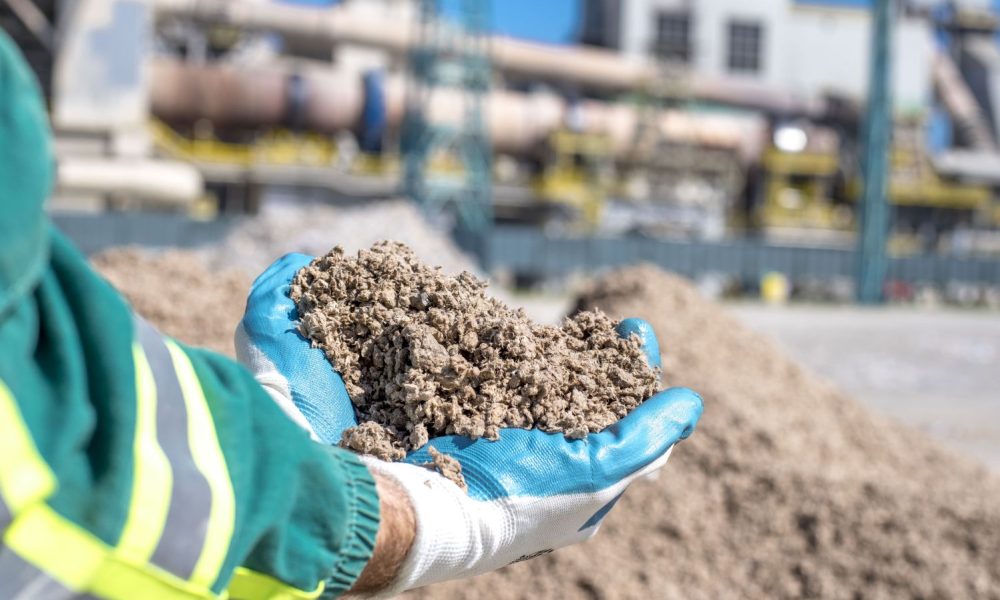
Demand for building materials increases. (Photo: Freepik, Wirestock)
The demand for building material is booming: steel, cement and construction machines are in demand than ever. The reconstruction of Ukraine and the renovation offensive in Germany drive the capacities to their limits. Investors can now benefit from the boom – with the Investco Stoxx Europe 600 Optimized Construction & Materials ETF. But is that the right entry time?
Building for the future: billions flow into cement and steel
The dimensions are huge: around 600 billion euros are likely to flow into the reconstruction of Ukraine alone. A sum that will deal with Europe’s construction sector for years. At the same time, Germany is planning a gigantic renovation offensive to bring dilapidated infrastructure up to scratch. Streets, bridges, schools and networks are facing a general overhaul. The wave of modernization lets the demand for building materials and machines go through the ceiling.
This is exactly where the Investco Stoxx Europe 600 Optimized Construction & Materials ETF (ISIN: IE00B5MTY309). The fund bundles the European construction companies and suppliers who benefit directly from the billion dollars. With a total cost rate of only 0.20 percent, it is one of the cheapest products in the market. Instead of physically buying the stocks, the ETF relies on synthetic replication via swaps with partners such as Goldman Sachs and JP Morgan. This lowers the costs and improves the replica of the index – a clear plus for long -term investors.
Green concrete and digital construction sites: Future technologies in sight
The ETF scores with a focus on innovation and sustainability. The largest position is Holcim with a weight of 15 percent. The Swiss cement giant relies on green concrete, which emits up to 40 percent less CO₂-a decisive advantage to meet the strict ESG requirements of the EU. With its environmentally friendly building materials, Holcim wants to play a key role in large -scale projects such as the reconstruction of Ukraine and the renovation of ailing bridges.
Saint-Gobain, the second largest position with 12 percent, also follows a clear ESG course. The French group relies on recycled concrete and energy-efficient building materials that are indispensable for EU-funded projects. Heidelberg Materials, represented at 4 percent in the ETF, goes one step further: The company relies on digital construction sites with AI-controlled concrete mixers, reduce the waste of material and thus increase efficiency.
The position of Assa Abloy in the ETF is particularly exciting. The Swedish Group is a leader worldwide in locking and security systems and with around 5.5 percent. In a world of increasing uncertainties, Assa Abloy offers everything from mechanical castles to highly developed electronic safety solutions. The global presence in over 70 countries and around 51,000 employees make the company an indispensable player in the area of building security.
Risk return: raw material prices and ESG traps
The performance of the ETFs is impressive: In the past 5 years, the value has more than doubled (plus 101 percent), since the laying in 2009 there has been a plus of 375 percent. The global infrastructure expansion drives the construction industry and the demand for sustainable building materials is increasing rapidly.
But the risks are also considerable. The raw material prices for steel and copper fluctuate massively, which puts the margins under pressure. In addition, the ESG transformation forces corporations to make costly changes. In particular, the CO₂ tax that the EU wants to introduce in the coming years could heavily burden the cement manufacturers-especially Holcim, whose production is particularly energy-intensive.
Investors must be aware that the volatility remains high. The ETF offers an attractive way to participate in the renaissance of the construction industry, but the risks should not be underestimated.
Conclusion: building materials as long -term investment chance
The Investco Stoxx Europe 600 Optimized Construction & Materials ETF is an exciting way to benefit from the European infrastructure expansion. The combination of traditional building materials and innovative technologies makes him attractive – especially for investors who rely on the modernization of Europe in the long term.
The low cost rate and strong performance speak for the fund, but the fluctuations in raw material prices and the increasing ESG requirements pose risks. Anyone who keeps a look at the long -term perspective and is willing to accept short -term setbacks could find an interesting depot mixing here.
More ETFs for the turning point
- Armor ETF from Wisdomtree: It bundles the heavyweights of the European armaments industry, which, thanks to the billion -dollar defense programs, have a decade of growth.
- Infrastructure ETF of Global X: The ETF invests in companies that are likely to benefit from a possible increase in infrastructure activities in Europe. This includes companies that work in the areas of traditional infrastructure, infrastructure networks, clean energy infrastructure and digital infrastructure.
Disclaimer:
No investment advice. No call to buy or sell securities.
